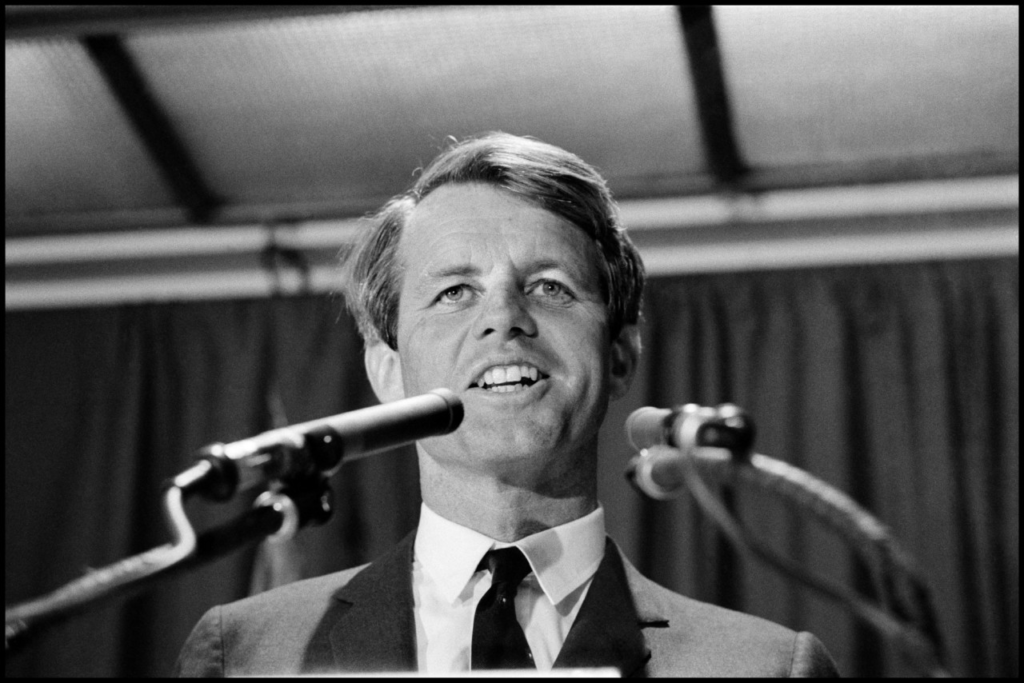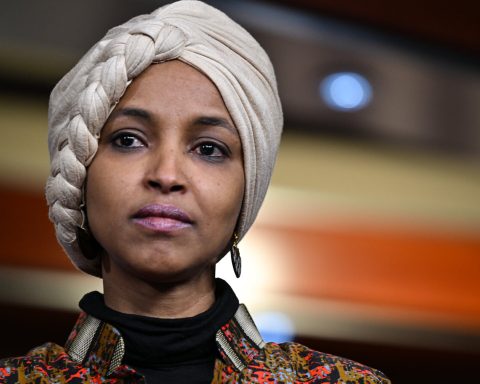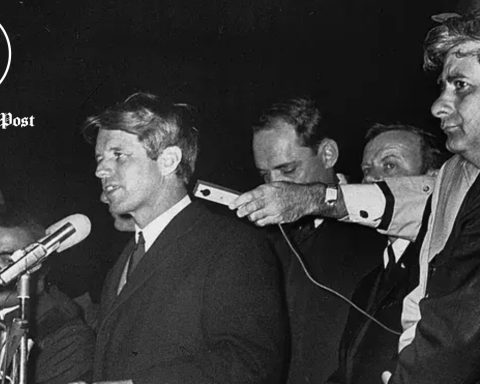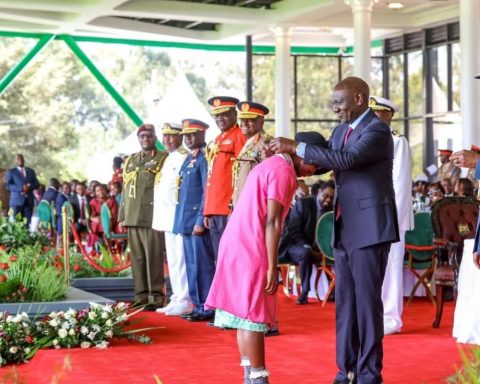On March 16, 1968, Robert F. Kennedy officially launched his bid for the presidency, defying previous claims that he would not oppose incumbent President Lyndon Johnson. Since John F. Kennedy’s victory over Lyndon B. Johnson for the Democratic Party’s presidential candidacy in 1960, Kennedy and Johnson have been at odds. Following the assassinations of President Kennedy, Robert Kennedy and Johnson’s choice of Johnson as his running partner remained contentious.

On March 16, Robert F. Kennedy made the formal announcement of his candidacy. Robert F. Kennedy made this announcement from the same location in the Senate Caucus Room where John F. Kennedy had announced his presidential candidacy in January 1960.He said:
I am today announcing my candidacy for the presidency of the United States. I do not run for the presidency merely to oppose any man but to propose new policies. I run because I am convinced that this country is on a perilous course and because I have such strong feelings about what must be done, and I feel that I’m obliged to do all that I can.
I run to seek new policies – policies to end the bloodshed in Vietnam and in our cities, policies to close the gaps that now exist between black and white, between rich and poor, between young and old, in this country and around the rest of the world.
I run for the presidency because I want the Democratic Party and the United States of America to stand for hope instead of despair, for reconciliation of men instead of the growing risk of world war.
I run because it is now unmistakably clear that we can change these disastrous, divisive policies only by changing the men who are now making them. For the reality of recent events in Vietnam has been glossed over with illusions.
The Report of the Riot Commission has been largely ignored. The crisis in gold, the crisis in our cities, the crisis in our farms and in our ghettos have all been met with too little and too late. No one knows what I know about the extraordinary demands of the presidency can be certain that any mortal can adequately fill that position.
But my service in the National Security Council during the Cuban Missile Crisis, the Berlin crisis of 1961 and 1962, and later the negotiations on Laos and on the Nuclear Test Ban Treaty have taught me something about both the uses and limitations of military power, about the opportunities and the dangers which await our nation in many corners of the globe in which I have traveled.
As a member of the cabinet and member of the Senate I have seen the inexcusable and ugly deprivation which causes children to starve in Mississippi, black citizens to riot in Watts; young Indians to commit suicide on their reservations because they’ve lacked all hope and they feel they have no future, and proud and able-bodied families to wait our their lives in empty idleness in eastern Kentucky.
I have traveled and I have listened to the young people of our nation and felt their anger about the war that they are sent to fight and about the world they are about to inherit. In private talks and in public, I have tried in vain to alter our course in Vietnam before it further saps our spirit and our manpower, further raises the risks of wider war, and further destroys the country and the people it was meant to save.
I cannot stand aside from the contest that will decide our nation’s future and our children’s future.
The remarkable New Hampshire campaign of Senator Eugene McCarthy has proven how deep are the present divisions within our party and within our country. Until that was publicly clear, my presence in the race would have been seen as a clash of personalities rather than issues.
But now that the fight is on and over policies which I have long been challenging, I must enter the race. The fight is just beginning and I believe that I can win .
Finally, my decision reflects no personal animosity or disrespect toward President Johnson. He served President Kennedy with the utmost loyalty and was extremely kind to me and members of my family in the difficult months which followed the events of November of 1963.
I have often commended his efforts in health, in education, and in many other areas, and I have the deepest sympathy for the burden that he carries today. But the issue is not personal. It is our profound differences over where we are heading and what we want to accomplish.
I do not lightly dismiss the dangers and the difficulties of challenging an incumbent President. But these are not ordinary times and this is not an ordinary election. At stake is not simply the leadership of our party and even our country. It is our right to moral leadership of this planet.
Read: Robert Kennedy, The Great President America Lost in 1968
Robert F. Kennedy was successful in four state primaries: Indiana, Nebraska, South Dakota, and California; as well as Washington D.C.
On June 1, during the final days of the California campaign, Robert F. Kennedy and McCarthy met for a televised debate. The debate turned out to be a draw, but after the debate, undecided voters favored Robert F. Kennedy over McCarthy by a 2 to 1 margin.

After addressing his supporters during the early morning hours of June 5, in a ballroom at The Ambassador Hotel in Los Angeles, Robert F. Kennedy left the ballroom through a service area to greet kitchen workers. In a crowded kitchen passageway, Sirhan Sirhan, a 24-year-old Palestinian-born Jordanian, fired off a .22 caliber revolver and shot Robert F. Kennedy in the head at close range. Following the shooting, Kennedy was rushed to Central Receiving Hospital and then transferred to The Good Samaritan Hospital, where he died early in the morning on June 6.

Robert F. Kennedy’s body was returned to New York City, where he lay in repose at St. Patrick’s Cathedral for several days before the Requiem Mass was held there on June 8. His younger brother, U.S. Senator Edward Kennedy, eulogized him with the words:
“My brother need not be idealized or enlarged in death beyond what he was in life; to be remembered simply as a good and decent man, who saw wrong and tried to right it, saw suffering and tried to heal it, saw war and tried to stop it.”

Later that day, a funeral train carried Robert F. Kennedy’s body from New York to Washington, D.C., where he was laid to rest at Arlington National Cemetery, next to his brother, John F Kennedy.
Source: The Robert F. Kennedy Memorial
Follow us on YouTube, Twitter, Facebook, Instagram, and LinkedIn for more updates.





